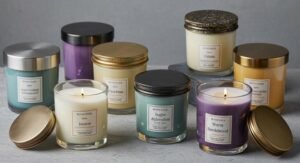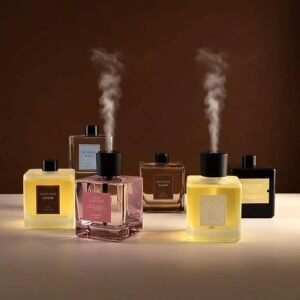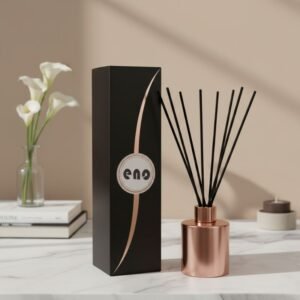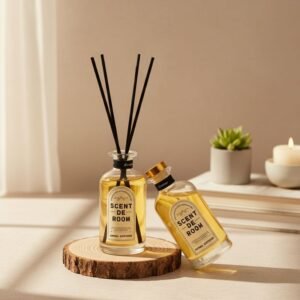The private label cologne market presents unprecedented opportunities, yet most brands struggle with complex production requirements and regulatory compliance challenges.
The growing demand for men’s fragrance brands creates lucrative opportunities for retailers and entrepreneurs to develop custom cologne lines. Private labeling in the fragrance industry allows businesses to offer signature scents without massive R&D investments, leveraging established manufacturing expertise to create unique eau de cologne products that reflect their brand identity.
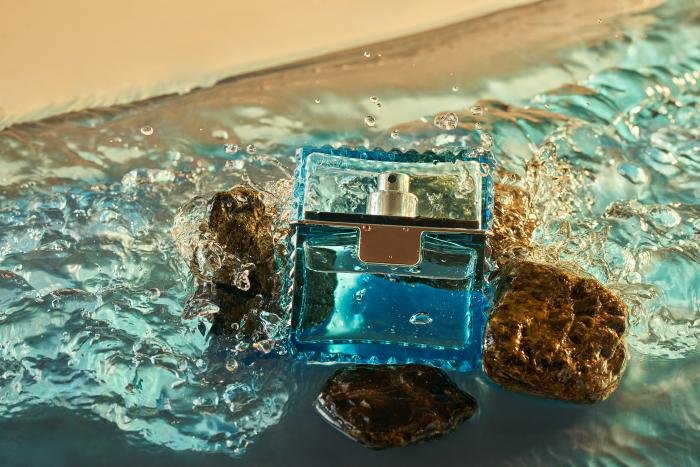
Companies like Loveeno are revolutionizing this space by providing comprehensive solutions that streamline the entire process from concept to shelf-ready products.
What Makes a Successful Private Label Cologne Strategy?
Many retailers struggle to create cologne lines that resonate with their target audience and generate consistent profits.
A successful private label cologne strategy combines precise fragrance market analysis with strategic partnerships between custom cologne manufacturers, focusing on optimal cologne concentration levels and demographic-specific packaging design to build a compelling men’s fragrance line.

Understanding Concentration Ratios and Market Positioning
The foundation of any successful private label cologne strategy begins with understanding concentration ratios and their impact on market positioning. Different concentration levels serve distinct market segments and price points. Eau de Cologne typically contains 2-5% aromatic compounds, making it ideal for budget-conscious consumers seeking daily-wear fragrances. Eau de Toilette offers 5-15% concentration, positioning products in the mid-market segment where most men’s fragrance sales occur.
Strategic positioning requires analyzing your target demographics’ preferences. Younger consumers often gravitate toward lighter concentrations for active lifestyles, while mature buyers prefer stronger formulations for professional settings. This demographic insight directly influences both concentration selection and packaging design decisions.
Optimizing Supply Chain and Compliance Requirements
Successful private label cologne strategies require meticulous attention to supply chain optimization and regulatory compliance. Bottle fittings must meet specific industry standards to prevent leakage and ensure consistent spray patterns. The choice between pump sprays, atomizers, or splash bottles affects both manufacturing costs and consumer experience.
Labeling compliance varies significantly across markets, with EU regulations requiring different ingredient disclosures than US standards. Working with experienced custom cologne manufacturers ensures adherence to these requirements while maintaining cost efficiency.
| Concentration Type | Aromatic % | Target Market | Typical Price Point | Bottle Size Range |
|---|---|---|---|---|
| Eau de Cologne | 2-5% | Budget/Daily wear | $15-30 | 100-200ml |
| Eau de Toilette | 5-15% | Mid-market | $30-80 | 50-100ml |
| Eau de Parfum | 15-20% | Premium | $80-150 | 30-75ml |
Companies like Loveeno excel in providing comprehensive solutions that address both technical requirements and market positioning, ensuring your private label cologne strategy aligns with industry best practices while meeting specific brand objectives.
How to Select the Right Scent Profile for Your Brand?
Choosing the wrong scent profile can doom your private label cologne before it hits shelves. Your target demographic expects specific olfactory experiences. Without proper scent alignment, your brand risks invisibility in a competitive market.
Select a scent profile by analyzing your target demographics’ preferences, determining optimal cologne oil concentrations, and aligning fragrance notes with brand positioning. Consider masculine scent profiles for men’s lines, focusing on concentration ratios between 2-8% for optimal performance.
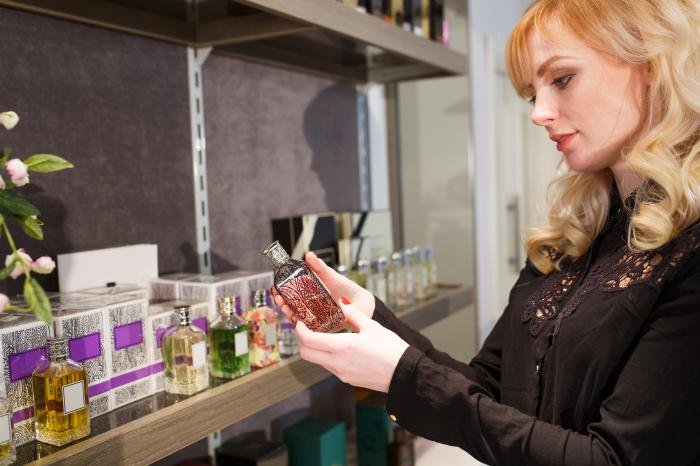
Demographics Drive Scent Direction
Understanding your target market forms the foundation of effective custom fragrance development. Men aged 25-35 gravitate toward fresh citrus and aquatic notes for daily wear, while the 35-50 demographic prefers sophisticated woody and spicy compositions. Research shows that 68% of men prefer lighter concentrations for office environments, making eau de cologne formulations ideal for professional settings.
Geographic considerations matter equally. Mediterranean markets favor marine and citrus-forward profiles, while Nordic regions respond well to warm, amber-based signatures. Loveeno’s development team leverages regional preference data to craft location-specific formulations that resonate with local tastes.
Concentration Ratios and Performance Metrics
The concentration of cologne oil directly impacts scent projection and longevity, critical factors for brand success. Standard cologne concentrations range from 2-8%, with sweet spots varying by note families.
| Concentration Level | Projection Time | Target Demographic | Best Note Families |
|---|---|---|---|
| 2-4% | 2-3 hours | Young professionals | Citrus, Marine |
| 4-6% | 4-5 hours | Active lifestyle | Woody, Fresh |
| 6-8% | 6-7 hours | Evening wear | Spicy, Oriental |
Strategic bottle fittings and labeling compliance ensure your signature scent maintains consistency across production batches. Consider atomizer specifications that deliver optimal particle distribution for each concentration level, maximizing the fragrance experience while meeting regulatory standards.
What Packaging Options Will Elevate Your Private Label Cologne?
Your cologne’s packaging determines shelf appeal, customer loyalty, and profit margins. Poor packaging choices can sink even exceptional fragrances in today’s competitive market.
Private label cologne packaging requires strategic combinations of spray bottles, roll-on applicators, sustainable materials, and compliance-ready designs that align with target demographics and distribution channels.
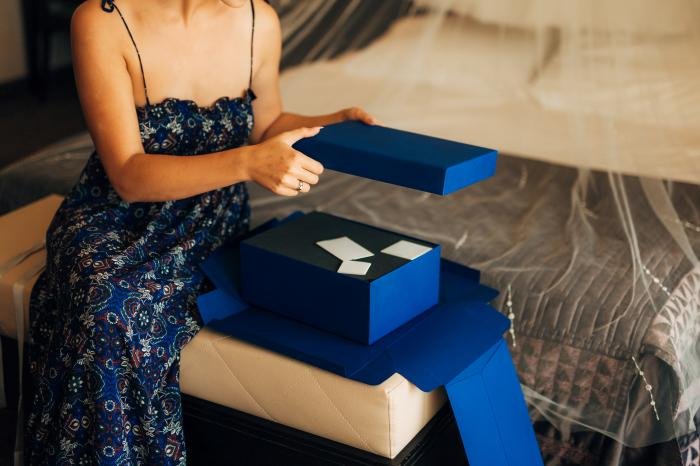
Spray vs Roll-On: Application Method Impact
The application method dramatically influences customer experience and purchase decisions. Spray bottles deliver wider fragrance coverage and stronger scent projection, making them ideal for eau de toilette formulations with 5-15% concentration ratios. Roll-on containers provide precise application control and reduce waste, particularly effective for eau de parfum concentrations above 15%.
Spray mechanisms require specific bottle fittings and pump compatibility testing. Roll-on designs need precise ball mechanisms and leak-proof sealing systems. Consider your target demographic: younger consumers prefer spray convenience, while mature buyers often choose roll-on precision.
Sustainable Materials and Brand Positioning
Sustainable cologne packaging increasingly drives purchasing decisions across all age groups. Glass bottles offer infinite recyclability and premium positioning, while aluminum containers provide lightweight durability for travel-focused products.
| Packaging Material | Recyclability | Cost Factor | Target Market |
|---|---|---|---|
| Recycled Glass | 100% recyclable | Premium pricing | Luxury positioning |
| Aluminum | Infinite recycling | Mid-range cost | Eco-conscious buyers |
| Bio-plastic | Compostable options | Variable pricing | Sustainable brands |
| Refillable Systems | Reuse-focused | Higher initial cost | Long-term customers |
Loveeno’s packaging expertise ensures your private label design meets labeling compliance requirements while maintaining sustainable standards. Our concentration-specific bottle recommendations optimize scent preservation and customer satisfaction across different formulation strengths.
How to Navigate Production and Regulatory Requirements?
Complex regulations threaten your brand’s market entry. Fragrance compliance failures cost thousands in recalls. Your private label cologne success depends on mastering production standards.
Private label cologne production requires navigating EU Regulation 2024/197, FDA guidelines, and quality control protocols. Proper fragrance compliance includes allergen labeling, concentration ratios, and Good Manufacturing Practices to ensure market-ready products.

Understanding Essential Compliance Standards
Private label cologne production operates under stringent fragrance regulations that vary by market. The EU’s CLP Regulation mandates allergen disclosure for 26 specific ingredients, while concentration ratios must align with cologne classifications (2-5% for Eau de Cologne). Cologne manufacturers must implement analytical testing protocols including gas chromatography and stability assessments. Quality control systems require batch consistency documentation, raw material certificates, and finished product verification. Your fragrance compliance strategy should include proper storage conditions, labeling accuracy, and traceability systems that satisfy both regulatory bodies and retail partners.
Production Quality Control Essentials
Effective quality control in cologne manufacturing encompasses multiple checkpoints throughout production. Raw material evaluation ensures ingredient purity meets specifications, while in-process monitoring maintains consistency across batches. Final product testing validates scent profiles, longevity, and safety parameters before packaging. Cologne manufacturers implementing GMP audits demonstrate reliability to retail partners seeking consistent product quality.
| Quality Control Stage | Key Requirements | Compliance Impact |
|---|---|---|
| Raw Materials | Purity certificates, allergen verification | Regulatory approval |
| Production | Batch monitoring, concentration testing | Product consistency |
| Final Product | Stability testing, scent profile validation | Market readiness |
| Packaging | Label compliance, bottle fitting standards | Retail acceptance |
Loveeno’s quality systems integrate automated monitoring with expert evaluation, ensuring your private label cologne meets both regulatory standards and market expectations while maintaining competitive production timelines.
Conclusion
Starting your private label cologne line requires strategic planning across scent selection, packaging optimization, and regulatory compliance. Success depends on understanding your target demographics, choosing appropriate concentration ratios, and partnering with experienced manufacturers who navigate complex fragrance regulations. Companies like Loveeno provide comprehensive solutions that streamline custom cologne development from concept to market-ready products. With proper preparation and expert guidance, your men’s fragrance line can capture market opportunities in the growing cologne industry while building lasting brand recognition through signature scent profiles.
FAQ
Q1: What is the difference between cologne oil and traditional cologne in private label products?
Cologne oil is a concentrated fragrance form, often alcohol-free, providing a longer-lasting scent compared to traditional cologne, which is diluted with alcohol for a lighter, more diffused application. Private label cologne oils are ideal for retailers targeting customers who prefer intense, long-lasting masculine scent profiles.
Q2: How does the concentration ratio affect the longevity of a private label cologne?
The concentration ratio determines the fragrance’s strength and longevity. Higher concentrations (e.g., 20-30% fragrance oil) result in a more potent and long-lasting scent, while lower ratios (5-15%) offer a lighter, everyday wear. Retailers should tailor this based on their target audience’s preferences for masculine scent profiles.
Q3: What are the advantages of spray vs. roll-on packaging for private label cologne?
Spray bottles provide even distribution and convenience, ideal for quick application. Roll-ons offer precise control and are travel-friendly, often preferred for concentrated cologne oils. Retailers should consider their audience’s lifestyle and usage habits when choosing packaging.
Q4: What labeling compliance requirements apply to private label cologne products?
Private label colognes must comply with FDA and IFRA regulations, including ingredient disclosure, allergen warnings, and net quantity labeling. Retailers should work with manufacturers experienced in fragrance labeling to ensure compliance and avoid legal issues.
Q5: How can retailers customize bottle fittings for their private label cologne line?
Retailers can choose from various bottle fittings, such as spray nozzles, roll-on balls, or screw caps, to align with their brand’s aesthetic and functionality. Custom fittings should prioritize durability and ease of use while maintaining the product’s integrity.

